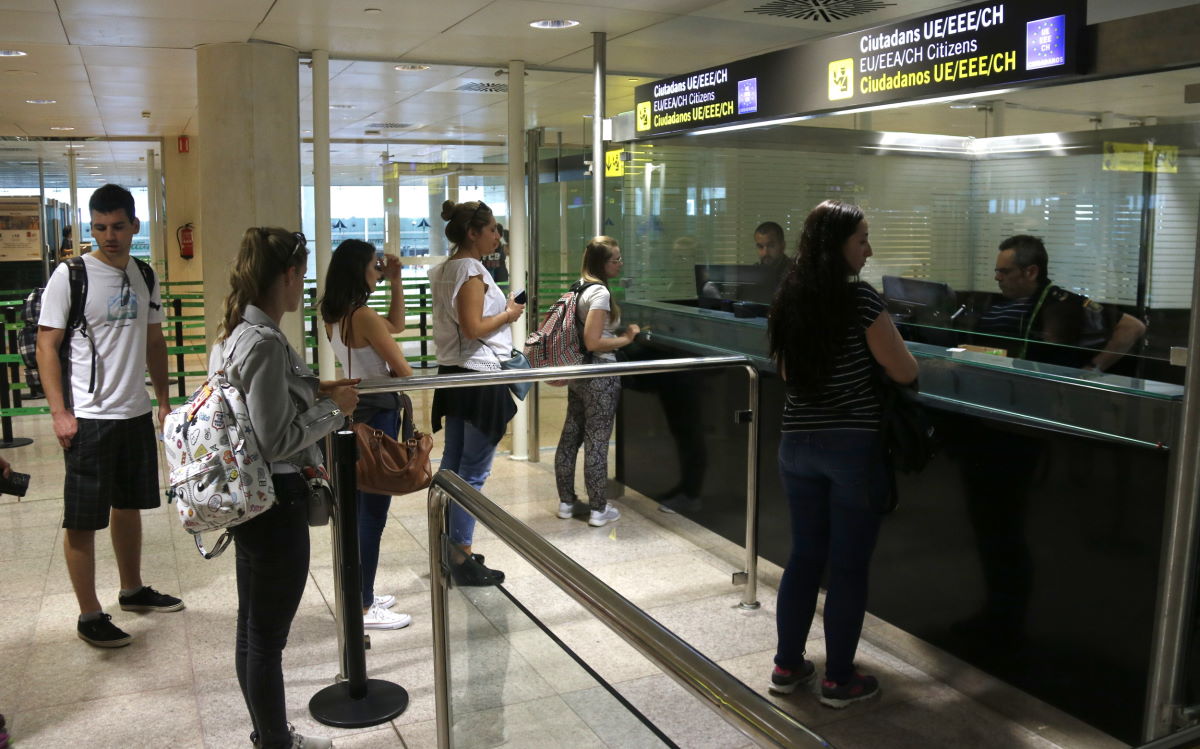Will the 90/180 day rule change for British travellers and swallows?
- 08-10-2021
- National
- Canarian Weekly
After the British public voted in favour of Brexit and the UK left the EU on January 1st 2021, travel to the Canary Islands, Spain, and the rest of the 26 countries in the Schengen area has become more difficult. Many people, particularly property owners and ‘swallows’, didn’t realise what effect Brexit would have on their visits to their homes in the sun, and even though Spain wants these visitors, their hands are tied by EU legislation.
British travellers are now classed as 3rd-country nationals meaning the freedom of movement rights around Europe have been removed, and they can only spend a maximum of 90 days in a 180 day period in EU countries. The situation for so-called “swallows”, those long term visitors who visit the Canary Islands and Spain for several months each winter but stay under 183 days a year so to avoid becoming a tax resident, is clearly now more difficult.
Previously, British nationals could apply for the green Certificado de Registro to retain EU advantages for free movement in Spain after Brexit when they just visit for a few months or so at a time, can not do so anymore as there are implications for state health care and taxation.
UK pensioners who have processed an S1 document in Spain to qualify for residency are registered with the UK as living here permanently, and the UK can and already does notify the Spanish tax office of any private pension amounts received by them, all be it this can take 2-3 years to filter through.
A British swallow who obtained a green residence certificate or a TIE residence card under the withdrawal agreement rules in order to try to get around the 90 in 180 rule, but are not really, nor do they want to be, residents in Spain for tax purposes etc, will in fact be flagged upon their entry or exit from Spain (including the Canary Islands) because as 3rd country nationals their passports are now monitored and stamped, and entry dates, exit dates and hence the length of stays are recorded like any other non-EU citizen. The “blind eye” turned by officials to EU citizens overstaying their welcome is now focused on NON-EU British Citizens.
Extended visas:
A great many British swallows are looking for ways to stay longer than the allotted 90-day visit allowed by the Schengen rules, and much is being made of the so-called “Golden Visa” or more correctly Residence Visa (Non-Lucrative) for non-working individuals (with a reliable, ongoing source of income and substantial savings) who wish to reside in Spain for more than 3 months at a time.
However, this is an application for ‘settled residence status’, and regrettably no provision was made during the Brexit negotiations for those who want to extend their holiday, but remain in Spain under the 183 days which would make them a tax resident.
In compliance with EU Regulation 2018/1806 of the European Parliament and of the Council of 14th November 2018, British passport holders travelling to Schengen countries for holidays, business or to visit family do not require a visa for stays of up to 90 days in a 180 day period, provided the visit is not for gainful activity. Please note that the 90 days will start counting from the date they enter any of the Schengen countries, not just Spain.
The Schengen Area covers most of the EU countries, except Ireland and the countries that are soon to be part of Romania, Bulgaria, Croatia and Cyprus. Although not members of the EU, countries like Norway, Iceland, Switzerland and Lichtenstein are also part of the Schengen zone.
The 26 Schengen countries are Austria, Belgium, Czech Republic, Denmark, Estonia, Finland, France, Germany, Greece, Hungary, Iceland, Italy, Latvia, Liechtenstein, Lithuania, Luxembourg, Malta, Netherlands, Norway, Poland, Portugal, Slovakia, Slovenia, Spain, Sweden, and Switzerland.
So, if the date of entry is considered as the first day of stay in the Schengen territory, the date of exit is considered as the last day of stay in the Schengen territory, as it is possible to leave and re-enter the Schengen Area over that 180-day period and have multiple trips.
This 180-day period is not fixed, it is a ‘moving window’ based on the approach of looking backwards. This means taking a calendar and highlighting all the time spent in Spain, and other Schengen countries, over the past 180 days. It’s important to remember that the Schengen rule doesn’t work with the calendar year, it’s always a case of counting back 180 days.
Is the rule being changed?
Currently, there are no negotiations taking place between the European Union and the UK regarding a change to the 90-day rule. There have been discussions regarding the concept of ‘reciprocity’ meaning that perhaps the European Union could treat UK citizens the same as the UK treats EU citizens, and this would mean the authorisation of 180-day stays in EU countries.
However, these talks have not produced any concrete results so far, so it looks as if you will have to adapt your plans to meet the rule of 90 days in Spain and 90 days back in the UK for the foreseeable future, as there are penalties to those discovered outstaying their allotted time.
There are still some people in Spain, and the Canary Islands, who have been here since January 1st and are staying ‘illegally’. This situation is their decision but they will come unstuck. All it needs is to be admitted to hospital, being stopped by the police, or leaving the country when their non-resident status will be discovered with no entry date on your passport, meaning you must have been here since before the turn of the year.
There are provisions in place for deportation from any country in the Schengen Area, and depending on how long you have been in the EU, will determine the amount your fine is, and can lead to being banned from re-entering any of the 26 countries for up to 5 years.
Other articles that may interest you...
Trending
Most Read Articles
Featured Videos
TributoFest: Michael Buble promo 14.02.2026
- 30-01-2026
TEAs 2025 Highlights
- 17-11-2025



























































